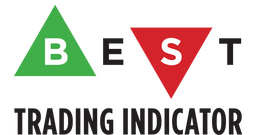Are you eager to delve into the world of trading but unsure whether to opt for a margin account or a cash account? Fret not! In this comprehensive guide, we'll explore the differences between these two types of accounts and equip you with the knowledge to make an informed decision, using examples to make the information more relatable. So, let's get started on this exciting journey!
1. What are Margin and Cash Accounts?
Margin accounts and cash accounts are the two primary types of brokerage accounts available to investors. A cash account allows you to purchase securities (such as stocks, bonds, and ETFs) using the cash you have deposited in the account. On the other hand, a margin account grants you the ability to borrow funds from your broker to purchase securities, essentially leveraging your investment.
2. How Does a Margin Account Work?
When you open a margin account, your broker extends a line of credit to you. The amount you can borrow depends on the value of the securities you hold in the account, as well as the broker's policies. For example, if your broker offers a 50% margin, you can borrow up to 50% of the value of your securities. This means that if you have $10,000 worth of securities in your account, you can borrow an additional $5,000 to purchase more securities.
Margin accounts come with certain risks, as they can magnify both profits and losses. If the securities you purchased on margin increase in value, you can enjoy amplified gains. However, if the value of the securities declines, you may face a margin call, requiring you to deposit additional funds to maintain the minimum margin requirement or risk having your securities liquidated.
3. How Does a Cash Account Work?
A cash account is a more straightforward and conservative option compared to a margin account. When you open a cash account, you can only purchase securities with the cash available in the account. This means that you will not be able to leverage your investments, and your potential gains and losses are limited to the amount you have deposited.
The main advantage of a cash account is that it offers a more controlled and less risky investment environment. As you are not borrowing funds from your broker, you will not face the possibility of margin calls or forced liquidations. This makes cash accounts ideal for beginners or conservative investors who prefer to avoid the risks associated with margin trading.
4. Margin Account vs. Cash Account: Key Differences
Here are the key differences between margin and cash accounts:
- Leverage: Margin accounts allow you to borrow funds from your broker to purchase securities, while cash accounts limit your investment to the cash you have deposited.
- Risks: Margin accounts expose you to higher risks, including margin calls and forced liquidations, while cash accounts provide a more controlled and less risky investment environment.
- Interest: With a margin account, you will be charged interest on the funds you borrow from your broker, while no interest is incurred on cash accounts.
- Trading Restrictions: Margin accounts may be subject to trading restrictions, such as pattern day trading rules, while cash accounts typically face fewer restrictions.
- Account Minimums: Some brokers may require higher minimum deposits for margin accounts compared to cash accounts.
5. Choosing the Right Account for You
To decide which type of account is best suited for your investment goals and risk tolerance, consider the following factors:
- Your experience level: If you're a beginner or prefer a more conservative approach, a cash account may be more appropriate. If you're an experienced investor who understands the risks and potential rewards of margin trading, a margin account might be a better fit.
- Your risk tolerance: If you're uncomfortable with the idea of borrowing money to invest and potentially facing margin calls, a cash account will offer a more controlled environment. On the other hand, if you're willing to accept higher risks in exchange for potentially higher returns, a margin account could be the right choice.
- Your investment goals: If your goal is to grow your investments steadily over time with lower risk, a cash account is likely more suitable. If you're looking to amplify your gains through leverage and are prepared to manage the associated risks, a margin account may be more appropriate.
- Your trading strategy: Depending on the trading strategies you employ, you might find one type of account more advantageous than the other. For example, day traders often use margin accounts to take advantage of short-term price fluctuations, while long-term investors might prefer the simplicity of a cash account.
By carefully considering these factors, you'll be better equipped to decide whether a margin account or a cash account is the best choice for your trading journey. Remember, it's essential to fully understand the risks and benefits of each account type before making a decision.

